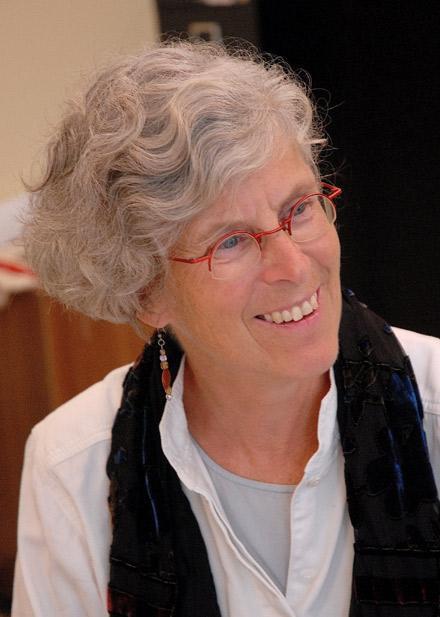Author suggests creating 'safety net'
CASTING A SAFE NET. West Seattle author Judy Pigott held a recent workshop on her new book "Personal Safety Nets" at the Senior Center of West Seattle.
Mon, 11/03/2008
When John Lennon hit a personal rough spot in 1965 he responded with "Help!" In that hit song he crooned that when younger he never needed any help, but "I've changed my mind. I've opened up the doors."
In her new book, "Personal Safety Nets: Getting Ready for Life's Inevitable Changes and Challenges," West Seattle author Judy Pigott also opens doors and asks, "In an emergency who will help you? To whom do you matter? If you fall off your skateboard, who will feed your cat?"
The proverbial "skateboard" could be your automobile that hits a tree, your house that catches fire, or perhaps a heart attack. The cat could symbolize your child, grandmother, or perhaps your financial affairs.
Pigott, and co-author, Dr. John W. Gibson, discuss how to effectively confront loved ones, neighbors, friends and health care providers to become a member of your "safety net" in case a minor emergency or major disaster strikes.
We are talking more than a group hug here. The book gets down to the nitty-gritty. It asks if your cellular telephone employs the "ICE (In case of emergency) Program." If you become unconscious due to health or accident, medics search your cell phone for emergency contacts. If "ICE-Sheila" appears, for instance, they phone Sheila and she would know who you are, what medications you are on, if you are allergic to any medications, and, yes, does your cat need to be fed. Others on your ICE list may know your social security number, Internet passwords, and possess a set of your car or house keys. They may be, or know, your power of attorney.
Pigott held a recent workshop at the Senior Center of West Seattle and armed the class with her "Personal Safety Nets" workbook that sets the table for her hardcover.
"These are courageous conversations," she said, addressing the class. "They're not easy, but are harder if you don't have them but need to. I want to give you doses of courage to go out and say, 'I want to have a really hard conversation with you.'
"Have a list of people to count on. If I were experiencing an emergency, who do I call?"
"Get Jesse," a few of her students blurted out with a laugh, referring to the popular consumer advocate on KING5 News. Pigott played along, and suggested casting a wider net than Jesse, just in case. Students paired off and created and shared a list of names they could count on. Some listed their spouse, girlfriend, children, and friends. One participant listed only her psychiatrist and the neighbor living in the apartment above hers.
"'Sonya did come to my rescue when the electricity went off," she said. "I have OCD (obsessive-compulsive disorder) and find it very hard to ask for help. That's why I took this class. I hoard things and currently can't enter my bedroom because of the stacks of newspapers."
She said she is working on developing a larger safety net to get more assistance.
Someone else remarked in frustration, "My husband has investment accounts on the computer that I have no clue about. If something happened to him I wouldn't know what to do."
"It takes asking questions you never asked your husband before," said Pigott.
The book also discusses the flip side of asking for help. How do you comfortably accept or decline when help is requested of you.
"It's hard enough to ask for help when you are feeling vulnerable," said a senior citizen to Pigott. "Then when you ask somebody and they say 'no,' now we have a situation. Why did they say no? You'll always have that wonder."
"Don't take 'no' personally," said Pigott, who added that people get busy with their own lives and may not have room on their plate to be part of your safety net, or they may need more time to consider your request.
Someone complained she always helped a friend move, but when it was her turn, the friend would not help her move. Next time her friend moves she will not assist, she said.
"I've talked to people who were sorry they bought a pickup truck for that reason," said Pigott. "You have to set your limits."
Pigott brought up another sticky situation. She pointed out the large demographic of unmarried couples in their 30's who live together, single seniors who are coupled, and those in committed same-sex relationships. She warned that these groups need to take extra steps planning in advance via their wills, powers of attorney, and other legal documentation to authorize their partner to make medical and financial decisions, and to allow for hospital visits and other rights that married couples enjoy.
"That's why planning in advance is critical," she said. "The time you start feeling terrible is not the time to start planning."
For more information on her books and workshops, go to www.personalsafetynets.com or phone Judy Pigott 933-6577.
Steve Shay may be reached at steves@robinsonnews.com


